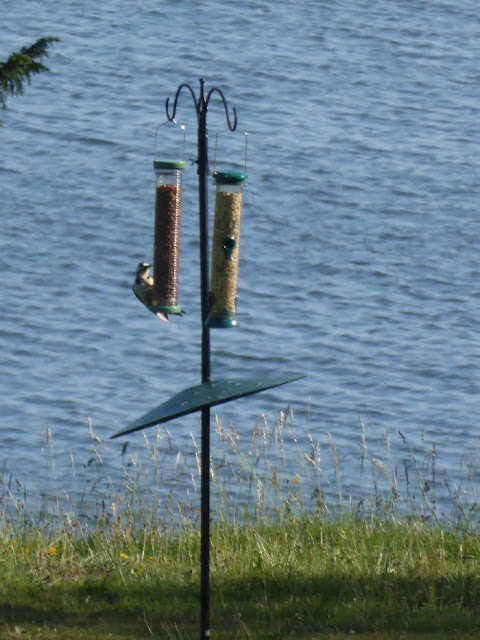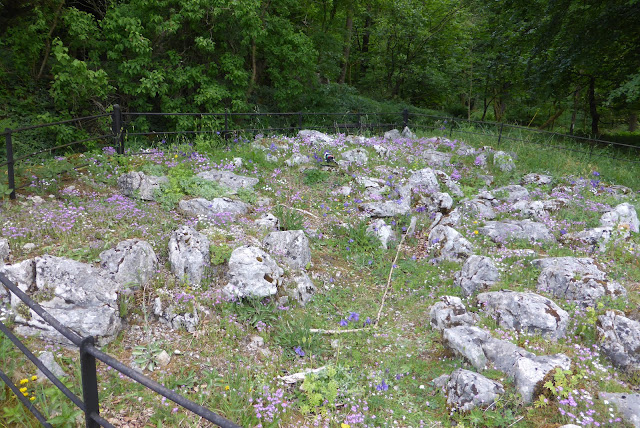There is lots to add for today, 11th June. Enough for four posts.

Today was the last day of the Sedges Course. We spent a while in the lab in the morning going over identification tips for the 29 members of the sedge family we had seen so far in the weekend. Then we set off for Ha Mire to the east of the Field Centre.
I looked hard for this tiny member for the Cyperaceae
 |
The very finest "grass" you can see in the very fore-ground is Bristle Club Rush - Isolepis setacea.. |
 |
| Only a couple of flowering heads had half emerged. So here is a picture I took earlier of a fully grown plant. (in 2004) Impressive, eh? |
Towards the end of the session at the East end I was pleased to find some Carex demissa (aka Carex viridula subsp oedocarpa) - the Common Yellow-sedge. This grows in more acid places than the Long-stalked Yellow-sedge, and is very uncommon on the Malham Estate..
 |
| There is usually and extra female flower head near the base of the plant (see on the left) |
 |
| The utricle beaks stick out more and do not bend back as much as in the Long-stalked Yellow Sedge |
We also saw the Broad-leaved Cotton-grass, the Slender Spikerush and the Few-flowered Spikerush, and Carex fulva a cross between Tawny Sedge and the Long-stalked Yellow-sedge.. bringing our total to 34 species and one hybrid. .. (The total number of Cyperaceae in UK is about 107)
Next we found three butterflies.. Small Pearl Bordered Fritillary (still waiting for confirmation of identificiaton)

After the sedge group had left I sat at the table on the lawn with a Leeds University Ecology/Zoology Student. They were all doing research projects. He and his friends were comparing feeding behaviour in woodland and in the open. He had spent 1 hour and the bird feeder had been visited by only four chaffinches feeding on seed on the ground, which spent about 3 minutes each. Suddenly we saw a greater spotted woodpecker arrive.
 |
| Add caption |
After his friends arrived back, I went down onto the lower lawn
 |
| Sweet Vernal grass and Meadow( or Downy?) Oat-grass |
 |
| and Bloody Cranesbill -Geranium sanguinium catching the late afternoon sun |
 |
| As I was leaving, I looked back to the rockery... where the "Fairy Foxglove" grows.. shucks, I had forgotten to show them the (planted) Carex muricata - The Large-fruited Prickly-sedge |
 |
| It had nine flowering shoots this year - not yet eaten by deer or rabbits. |
 |
| This only grows in the wild in about 5 sites. |
Why not come on the Wild Flowers course on 4-7 July. I wonder what we'll see then?



No comments:
Post a Comment